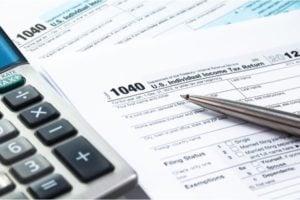
Some delinquent taxpayer accounts are now being handled by private debt collectors instead of the IRS. Taxpayers should be aware of the rules private debt collectors must follow in order to avoid scams or unfavorable tax settlements.
Cases Assigned to Private Debt Collectors
The IRS is only assigning certain cases to private debt collectors. These cases are generally older or involve taxpayers who have been difficult to contact.
Your case may be assigned to a private debt collector if:
- More than one-third of the collections limitations period has elapsed and no IRS employee has been assigned to your case, or
- The debt was assigned to an IRS employee, but over one year has passed without any contact from the taxpayer.
In addition, certain accounts won’t be assigned to private debt collectors, including:
- Accounts for minor children
- Taxpayers in designated combat zones
- Deceased taxpayers
- Victims of tax identity theft
- Taxpayers currently under examination (audit), investigation, or levy
- Accounts with a pending or active Offer in Compromise
- Accounts with an installment agreement
- Subject to appeal rights
- Innocent spouse cases
- Taxpayers in federally declared disaster areas and requesting relief
How to Spot Tax Scammers
A call from a private debt collector should not be the first time you learn of your IRS tax debt. You should have received many notices from the IRS over the preceding months or years, as well as a notice informing you that your case is being assigned to a private debt collector.
The four agencies assigned to collect these debts are:
- CBE
- ConServe
- Performant
- Pioneer
They should never ask you to send payment directly to the private debt collection agency. Instead, they should inform of payment options available their the IRS website. Checks should be made out to the U.S. Treasury and sent to the IRS.
Problems With Private Debt Collectors
Private debt collectors may have incentives that don’t benefit taxpayers. Your debt collector may not explain all of your tax resolution options, and may have an interest in pushing a solution that benefits them, not you.
You may request that the private debt collector transfer your case back to the IRS. If you have any doubts about the legitimacy of the debt collector, contact the IRS to ask for confirmation.
If you need help resolving your tax debt, contact a tax resolution attorney to discuss your case.
The Gartzman Law Firm handles IRS tax debt and other tax resolution cases. Use our contact form to request a consultation with an Atlanta tax resolution attorney.

